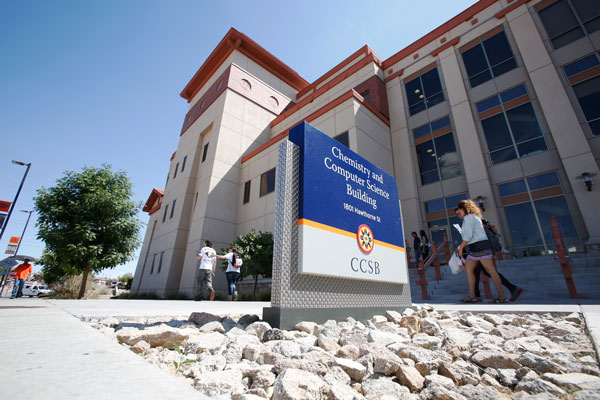 EL PASO, Texas – The University of Texas at El Paso and California State University Stanislaus have formed a consortium with their community college counterparts, El Paso Community College and Merced College, under a $3.2 million grant from the National Science Foundation. The group will utilize the funding over five years to increase enrollment and diversity in cyber security through a scholarship program called S-STEM.
EL PASO, Texas – The University of Texas at El Paso and California State University Stanislaus have formed a consortium with their community college counterparts, El Paso Community College and Merced College, under a $3.2 million grant from the National Science Foundation. The group will utilize the funding over five years to increase enrollment and diversity in cyber security through a scholarship program called S-STEM.
Under the partnership, students interested in studying computer science will receive assistance for their first year at their community college, then transfer to the corresponding university. Professor and Chair of the Computer Science Department Ann Gates, Ph.D., said collaborating with community colleges is critical in the industry with the current demand in cyber security and the need for diversity in that skilled workforce.
Students funded at EPCC and UTEP will complete a B.S. degree in computer science with a Secure Cyber-Systems track at UTEP.
“We recognize that in order to increase the number of students in STEM (science, technology, engineering and math) fields, especially computer science, that we have to look at the pathways to a four-year college like UTEP,” Gates explained. “We really feel it’s important to build these tracks and help the students thrive when they come to UTEP. We want to get them excited and increase student engagement early in the program.”
The consortium is looking at course alignment, coordination and sharing of best practices.
“We’re hoping to develop models that other universities can look at,” Gates said.
At the core of the S-STEM program is competency in cyber security, but it is enhanced by professional development skills like interviewing and communication skills, marketing, critical thinking and professional internships. Funded students will participate in extracurricular activities, such as workshops and competitions that will enhance their knowledge in cyber security and shape their professional skills, as well as skills necessary to function within a team.
“What we hear a lot nationally in the industry is that students who graduate with a computer science degree are technically good students, but it’s the soft skills that a lot of the time are lacking,” said Salamah Salamah, Ph.D., software engineering program director and the lead of this S-STEM grant.
Salamah added that providing the financial support for students may also help them gain more experience. Students who are awarded the scholarship can receive the money for up to four years.
“Giving them this money will hopefully allow them to work less and spend more time as students,” he said.
The scholarship application and selection process has various steps and requirements.
The program has already established the first cohort of students at all four institutions this spring semester, with a new cohort selected at the beginning of the new academic year.
For more details, students should visit www.cs.utep.edu/s-stem-program/.